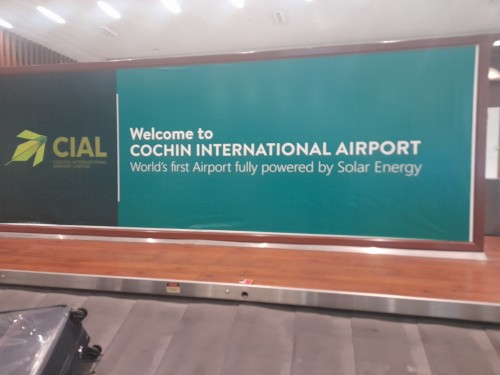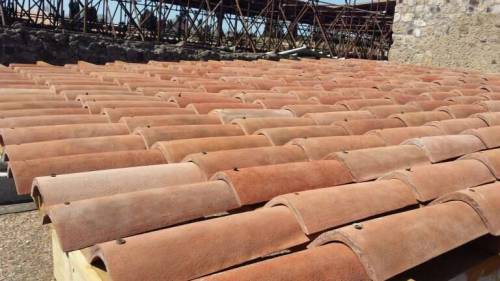Solar Energy - Tumblr Posts
Dr. Shirley Jackson

Shirley Ann Jackson made your cellphone possible.
To start, I am beyond pissed off that google searching “Dr. Shirley Jackson” was corrected to Shirley Ann Jackson. Way to go, google.
Dr. Shirley Jackson was the first African-American woman to graduate from MIT. That would be the same institute astronaut Edwin “Buzz” Aldrin and physicist Richard Feynman graduated from.
Her research made touch tone phone, fibre optics and solar cells reality. She also made caller ID and call waiting possible.
Dr. Shirley Jackson is a brilliant women who deserves a great deal of recognition most of us are not giving her.
this is incredibly cool

FTA: “Kenya installs the first solar plant that transforms ocean water into drinking water, and it could be the solution to the global lack of water
The Earth is a watery place. In fact, 71 percent of our planet is covered in water [1]. Despite this, one in nine people do not have access to safe drinking water – that’s around 785 million people [2].
The trouble is, 96.5 percent of all Earth’s water is found in the oceans in the form of saline water, and is not drinkable for humans. That only leaves us with rivers, lakes, and groundwater to satisfy our water needs [1].
According to the World Economic Forum, the global water crisis ranks as the number four risk in terms of impact on society [3]. Let’s face it – humans need water to survive.
If you’re reading this from Canada or the United States, you may not understand this crisis on a personal level. After all, you can turn on a tap and have safe drinking water instantly start flowing from the faucet. This, however, is not the case for billions of people living on other continents. One NGO (Non-Government Organization) is trying to change that.
GivePower
Give Power’s mission is to install solar energy technologies that will bring essential services to developing communities in need [4]. Their most recent break-through project installed a solar-powered desalination system to bring clean, healthy water to the people in Kiunga, a rural village in Kenya [4].
With this technology, the salty ocean water will now be a viable source of water for the people living in this village. The system is capable of producing about 70 thousand litres or drinkable water every day, which is enough for up to 35 thousand people [4].”
GivePower
Do note that they are not yet rated on Charity Navigator

#BarrelSauna
Barrel Sauna directly from Estérel, Lac Dupuis, Québec, Canada.
Bitten by the wanderlust bug, this young man quit his job, sold his stuff and converted an old van into his new home on the road less traveled.
In Kerala rn, I got something good about it I thought I'd share.
The good stuff is the Kochi airport, which completely runs on solar energy.

And call it Kochi International Airport. Not Cochin. Cochin is what British colonialists called Kochi during their time here. Unfortunately, the colonial sentiment still runs in many places in India, especially big cities. In our solarpunk future we give a giant middle finger to colonialism trying to make people feel ashamed of their native language.

Invisible Solar
Invisible Solar is a new PV technology that take on the appearance of any building material. Each Invisible Solar module is more than a photovoltaic panel, it also is an active architectural element with various functionality.
Disguising solar panels as ancient Roman tiles in Pompeii

“They look exactly like the terracotta tiles used by the Romans, but they produce the electricity that we need to light the frescoes,” says Gabriel Zuchtriegel, Director of the Archaeological Park of Pompeii. This solution is part of a more comprehensive strategy to turn costs into savings opportunities and to embrace sustainable development.
Technically called “traditional PV tiles”, the invisible solar panels used in Pompeii come from Camisano Vicentino, a little Italian town with slightly more than 10 000 inhabitants, halfway between Padua and Vicenza. They were created and patented by the family business Dyaqua.

How They Work

Operating of Invisible Solar modules is based on the low molecular density. Each module is composed of a non-toxic and recyclable polymeric compound we properly developed to encourage the photon absorption.
Inside the module there are incorporated standard monocrystalline silicon cells. The surface, that is opaque at the sight but translucent to sun rays, allows the light to enter and feed the cells.

Oh my goodness.
Solar voltaic’s designed for historic contexts that offers architectural and aesthetic integration?
AND they are already installed in Pompeii and not marketing vapourware?
AND they are made by a small Italian family business?
Be still my beating solarpunk heart 🥰 ☀️
via @stml in a forum.






Just imagine a world full of beautiful stained glass windows which also generate electricity…
[Oxford Photovoltaics]

Traditional Exterior
I was talking to my dad about renewable energy and he was like “the only problem with solar farms is they take up so much space.”
And it made me think about a city and how much sun exposure all the rooftops in a city get and…why not just make the city it’s own solar farm by putting solar panels on every rooftop?





